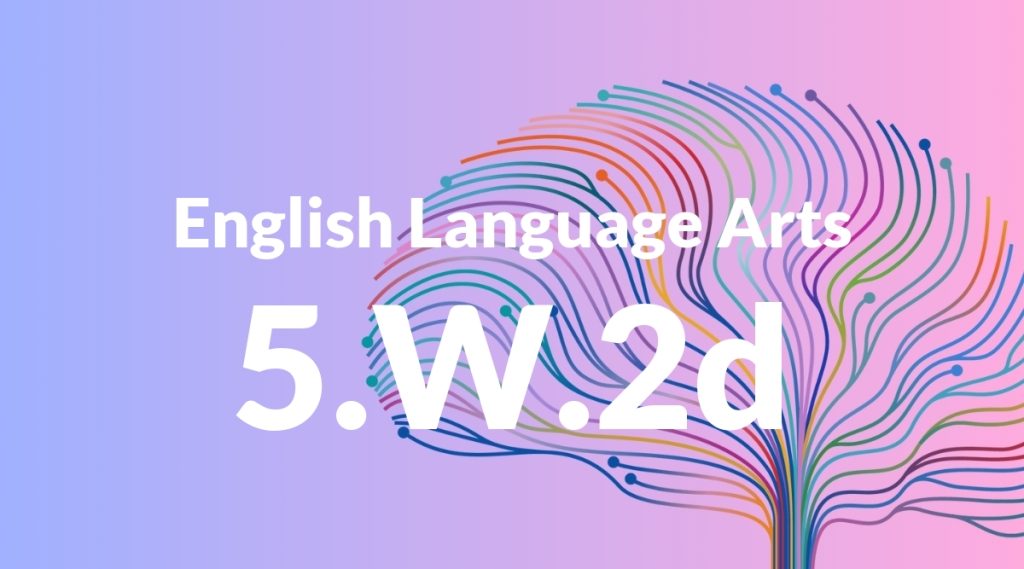Standard: 5.W.2d – Use precise language and domain-specific vocabulary to inform about or explain the topic.
Grade level: Grade 5
Subject: English Language Arts
Domain: Writing
Teacher Overview
This standard focuses on the use of precise language and domain-specific vocabulary to inform or explain a topic. It is crucial for students to learn how to communicate their ideas clearly and accurately, which is an essential skill in both academic and real-world settings. Students should have a basic understanding of sentence structure, grammar, and general vocabulary. They should be familiar with the process of drafting, revising, and editing written work.
After mastering this standard, students will be able to write more sophisticated and specialized texts, enhancing their ability to communicate effectively in various academic and real-world contexts. They will also be prepared to tackle more complex writing assignments in higher grades.
Common Misconception 1
One common misconception is that using big words is the same as using precise language. This is incorrect because the goal is to choose words that best fit the context and meaning, not necessarily the complexity of the words.
Intervention 1
An evidence-based intervention is to teach students to focus on the clarity and appropriateness of their word choices, using examples and practice exercises to reinforce the concept.
Common Misconception 2
Another misconception is that domain-specific vocabulary is only necessary for technical subjects. This is incorrect because precise language is important in all subjects, including literature and social studies.
Intervention 2
To address this misconception, provide students with examples of domain-specific vocabulary across various subjects and engage them in activities that require the use of such vocabulary in different contexts.
Prerequisite Knowledge
Students should have a basic understanding of sentence structure, grammar, and general vocabulary. They should be familiar with the process of drafting, revising, and editing written work.
Subsequent Knowledge
After mastering this standard, students will be able to write more sophisticated and specialized texts, enhancing their ability to communicate effectively in various academic and real-world contexts. They will also be prepared to tackle more complex writing assignments in higher grades.
Instructional Activities
- Have students write a short report on a science topic using precise and accurate terminology.
- Organize a peer review session where students provide feedback on each other’s use of domain-specific vocabulary.
- Create a vocabulary list for a specific subject and have students use each word in a sentence.
- Develop a writing prompt that requires students to explain a process using clear and precise language.
- Conduct a mini-lesson on the importance of word choice and provide examples of effective and ineffective language use.




